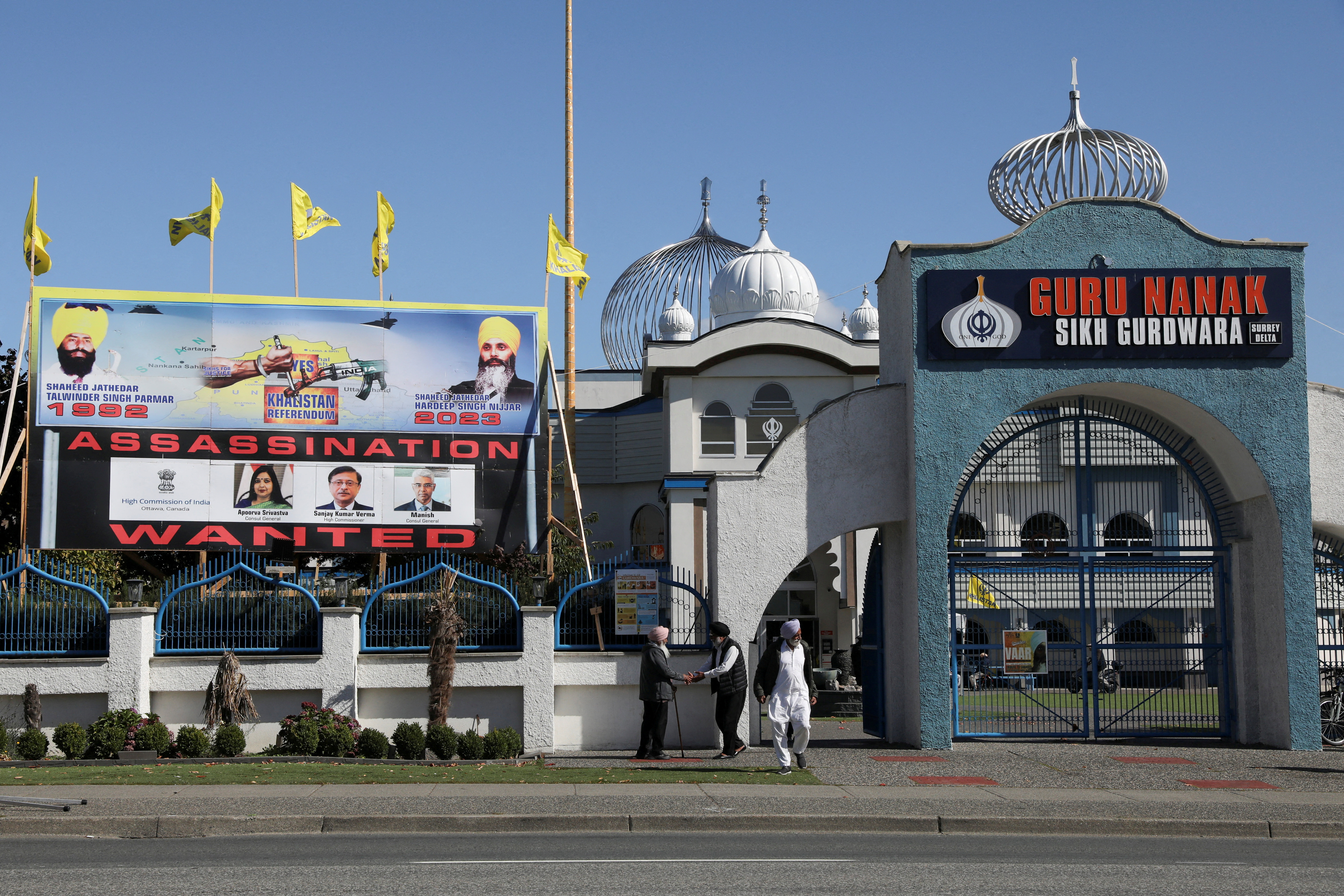2023-10-03T07:11:45Z
TIMBUKTU/DAKAR (Reuters) – Islamist militants in Mali began a blockade of Timbuktu by cutting road access in August and then shut off river and air routes in an offensive that has put the city once again on the frontline of a jihadist insurgency.

A man walks toward Sankore mosque, also known as the former University of Sankore, in Timbuktu, Mali September 25, 2023. REUTERS/Stringer
The bombing began soon after. On Sept. 21, witnesses said rockets hit a hospital, killing two children, and landed near a school where survivors of a passenger boat attack that killed more than 100 people were sheltering.
“Our worry is the shelling,” businessman Sory Touré said in Timbuktu, which was occupied by jihadists a decade ago. “It creates a real psychosis and leaves a lasting impression. I have this fear within me.”
Since the United Nations began winding down its peacekeeping mission in July, al Qaeda affiliated militants launched an offensive in central Mali, fighting has resumed between the army and Tuareg rebels from the north and, in the east, Islamic State-allied insurgents have continued to carry out attacks.
Mali, run by a junta that has spurned the support of U.N. and French forces, is in meltdown and the violence risks adding to instability across West Africa’s Sahel, a region already reeling from military coups in neighbouring Burkina Faso and Niger.
Experts compare Mali’s situation now to its position in 2012 when another Tuareg rebellion was overtaken by jihadists who captured Timbuktu and pressed south towards the capital Bamako.
“This conflict is escalating fast,” said Ulf Laessing, the Bamako-based head of the Sahel programme at the Konrad Adenauer foundation. “There is a risk of civil war.”
Back in 2012, French forces and the U.N. intervened to halt the advance in Mali. But there will be no such intervention now.
Mali’s military rulers, who consolidated power over two coups in 2020 and 2021, severed ties with former colonial power France and kicked out its troops. In June, it ordered the 13,000-strong force deployed by the United Nations to leave.
Russia’s Wagner Group, which has sent 1,000 mercenaries to support the junta, has failed to fill the gap and is accused of attacks against civilians.
More than 650 people have died in conflict in Mali in the two months after the U.N. began pulling out, a more than 40% rise over the previous two months, U.S.-based group Armed Conflict Location & Event Data Project said.
Mali’s authorities did not respond to specific requests for comment for this article. The army said in a statement on Monday that September had been a “turbulent” month but it would continue to fight its enemies to protect the nation and its people.
‘TOO FEW TROOPS’
In 2013, French forces beat back Islamists. But they regrouped and waged a new campaign that has killed thousands and displaced millions in Mali, Burkina Faso and Niger, a band of countries on the edge of the Sahara. Insurgents also have a foothold in West African coastal states, including Benin, Togo and Ivory Coast.
Insecurity has spawned coups whose leaders have jilted regional and Western states. France said last week it would pull out troops from Niger. Domestic armies are struggling alone.
In Mali, fighting began in August between the army and an ethnic Tuareg group called the Coordination of Azawad Movements (CMA) around a base vacated by the U.N. Since then, CMA has attacked other Malian army bases, some hundreds of miles apart.
The group laid down arms in 2015 under a U.N.-brokered deal but says the army has encroached on its territory and says these are “times of war”. The army calls CMA fighters “terrorists”.
Al Qaeda-affiliated Jama’at Nusrat al-Islam wa al-Muslimin (JNIM) raided other military camps, attacked an airport, fired on passenger boats and launched its blockade of Timbuktu.
“The problem is Mali has too few troops and too little mobility,” said Michael Shurkin, director of global programs at 14 North Strategies consultancy. “JNIM and CMA have freedom of movement over the entire area.”
There is no evidence the groups coordinate, security experts said. But they have other ties. JNIM’s leader Iyad Ag-Ghali is a former Tuareg rebel.
“They have each other’s phone numbers. That doesn’t mean they are in lock step, but they can communicate,” Shurkin said.
‘BAD TO WORSE’
Timbuktu, a centuries-old centre of Islamic learning, is now under siege. Food and other supplies are blocked, driving up prices for essentials. Traders in the city say sugar is up 25%, while charcoal for cooking, potatoes and onions are up 30%.
Residents wary of falling rockets avoid markets and a nightly curfew empties the streets.
“Things are going from bad to worse,” said market trader Mohamed Massaya. “Our business has stopped working. We are making do with our old stocks.”
Hundreds of survivors were brought to the city after a JNIM attack on Sept. 7 on the “Timbuktu”, a boat carrying soldiers and residents from Gao. Ferry services stopped after that.
Salaha Maiga, a member of Mali’s National Transitional Council, the junta’s equivalent of a national assembly, told Reuters that 111 people were killed in the attack. Authorities originally said 64 died.
Survivors are struggling in the aftermath.
“We cannot describe the horror,” said Aicha Sababou, who was on the boat. “Seeing dozens of people die and burying them together is scary. We are happy to rejoin our families even if there are still wounds we need to heal.”





